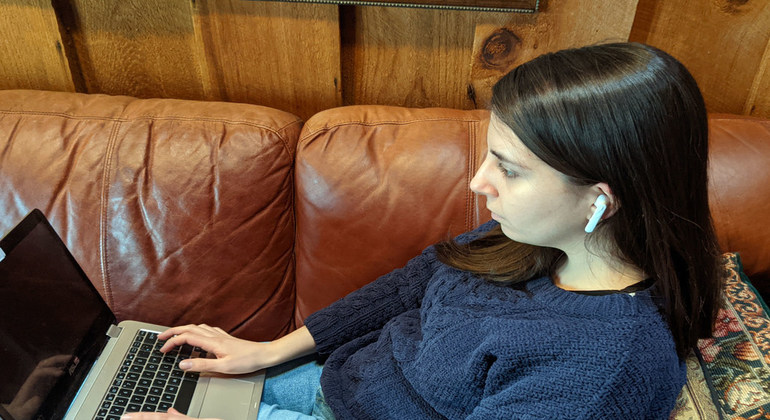The World Health Organization’s (WHO) report, launched ahead of World Hearing Day 2021 on Wednesday, says that in less than 30 years, nearly 2.5 billion people globally face the threat of hearing loss – at least 700 million of whom will require ear and hearing care as well as other rehabilitation services, unless action is taken.
That figure would mark a significant increase from the current 430 million people worldwide who are experiencing “disabling hearing loss”.
“Our ability to hear is precious. Untreated hearing loss can have a devastating impact on people’s ability to communicate, to study and to earn a living”, said WHO Director-General chief Tedros Adhanom Ghebreyesus. “It can also impact on people’s mental health and their ability to sustain relationships”.
Hearing investments
The new report underlines the need to promptly step-up efforts to prevent and address hearing loss by investing and expanding access to ear and hearing care services.
WHO has calculated that governments can expect a cost-effective return of nearly $16 for every dollar invested.
The vast majority of those with disabling hearing loss, live in low and middle income countries where policies, trained professionals, infrastructure and basic awareness to address the issue, are commonly lacking.
“Integrating ear and hearing care interventions within national health plans and delivering these through strengthened health systems, as part of universal health coverage, is essential to meet the needs of those at risk of or living with hearing loss”, said Bente Mikkelsen, Director of the WHO Department of Noncommunicable Diseases.
Hearing loss
In children, almost 60 per cent of hearing loss can be prevented through measures such as rubella and meningitis immunizations, improved maternal and neonatal care, and screening for and early management of otitis media – inflammatory diseases of the middle ear.
In adults, noise control, safe listening and surveillance of medicines that cause a toxic effect on the ear or its nerve supply, together with thorough ear hygiene can help maintain good hearing and reduce the potential for hearing loss.
Correcting the loss
Identification is the first step in addressing hearing loss and related ear diseases.
According to WHO, clinical screening at strategic points in life ensure that any loss of hearing and ear diseases can be identified as early as possible.
Moreover, recent technological advances, including accurate and easy-to-use tools, can identify ear disease and hearing loss at any age, and screenings can be done during the COVID-19 pandemic and in underserved areas of the world.
Untreated hearing loss can have a devastating impact on people’s ability to communicate, to study and to earn a living — WHO chief
Once diagnosed, early intervention is key. Medical treatment can cure most ear diseases and where hearing loss is irreversible, rehabilitation can prevent adverse consequences of hearing loss.
A range of options are available, including technology such as hearing aids and cochlear implants, which, when accompanied by appropriate support services and rehabilitative therapy, are effective and can benefit children and adults alike.
“To ensure that the benefit of these technological advances and solutions is equitably accessible to all, countries must adopt an integrated people-centered approach”, Dr. Bente Mikkelsen advised.
The report also highlights that sign language and other sensory substitution, such as speech reading, are important options for many deaf people, as are hearing assistive technology and services, including captioning and sign language interpretation.



